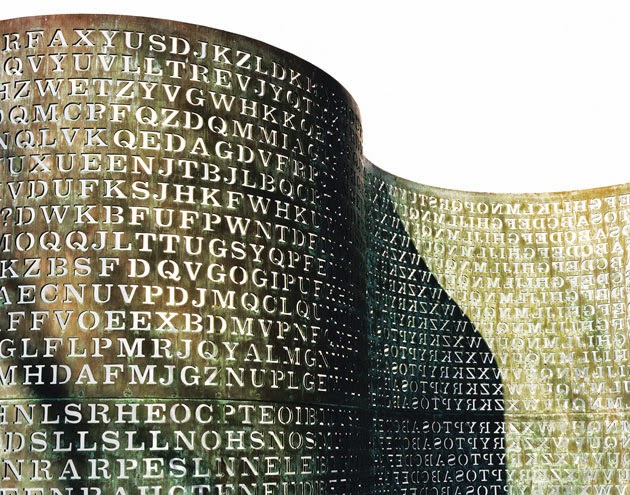Many thanks for your patience. Hope you enjoyed the photo tips while I was off doing other things.
Speaking of which, I gave you all the chance to suggest a topic for this week and nobody did. So you all know what that means…
It means I’m going to ramble on about spelling and vocabulary again.
Hey, don’t blame me.
A few times in the past I’ve talked about how a good working vocabulary is
the most basic part of a writer’s tool chest. But I realized today that’s not really true. Well, not so much that it isn’t true, but that it’s a poor metaphor.
A much better way to put is that vocabulary is my raw material. It’s my concrete. My brick and mortar. It’s going to be the foundation of everything I build on the page, supporting all the weight of my clever ideas and images.
Now, that being said…
It doesn’t take a lot of construction experience to know the foundation of a structure is very important, and the materials I use to make that foundation is just as important. I’m willing to bet you’ve probably seen a pothole or two because the contractor who built the road used sand as a base instead of gravel. The sand’s much cheaper and they work exactly the same… until it rains. I once saw some
fast-cheap condos getting built in San Diego and they were using 1x3s for all the interior walls instead of 2x4s. It’s all wood, right?
But those are the easy ones to point out. Anyone can see the difference between sand and gravel at a glance. The really dangerous mistakes happen when people can’t tell the difference at all. Balsa wood could pass for pine from a few feet away, but they hold up very differently under pressure (there’s a reason one gets used for houses and the other gets used for model planes). Concrete and cement may look similar, but they’re two very different materials and not interchangeable at all.
Heck, I read a big article once about the science of bricks. It was a huge advancement when people began to realize the correct ratios and heating time bricks needed. Bricks went from lumps of dried mud to man-made rocks, and human construction leaped forward—from wattle-and-daub huts to cities and pyramids, just like that.
If I use the wrong material, or the wrong ratios, it’s a recipe for disaster. We’re not just talking potholes. This can be a structural-collapse level problem. Cracks in foundations. Walls coming down. Buildings crumbling.
As a writer, words are what we use to make our foundations. They’re what holds everything up. I can have the most amazing imagery, the most brilliant metaphor, the most mind-blowing plot twist, but if the wards I’m basing it on aren’t spilled rite, or jest the wrong words, no won is gong to rake it seriously.
See what I mean? You laughed a little bit at that last sentence, didn’t you? Maybe not out loud, but it got a reaction from you. And it wasn’t the reaction the rest of the paragraph was leading you to, was it? The whole point I was trying to make got brushed aside because you were knocked out of
the flow of reading and started focusing on the mistakes.
And laughing at them.
I don’t want my amazing imagery blown because I used the wrong word. I don’t want a reader to skim over my
mind-blowing plot twist because I wrote
they’re instead of
their. And I really don’t want an editor or agent putting my manuscript in that big pile on the left because my brilliant metaphor on page five is making me look like… well, like I don’t know the raw materials of the trade.
Well, okay, I knew the difference. I did that to prove a point. But it’s bothersome how many times I see things like this slip by people.
In fact, here’s a list of all the things like this I’ve seen slip past people. The word they used… and the word they meant to use. Some were getting paid for it. Others thought they should be getting paid. Or getting paid more.
Do you know what all of these words mean?
diffuse vs. defuse – You can only do one with perfume.
knew vs. new – The irony on this one was painful…
bred vs. bread – One of these should not involve children.
break vs. brake – I only want to do one of these with my car.
retch vs. wretch – Only one of these is a poor bastard.
fare vs. fair – The taxi driver only cares about one of these.
instill vs. install – Only robots use both of these for emotions.
drought vs. draught – Only one involves a lack of water.
heroin vs. heroine – Two very different things to be hooked on.
breath vs. breathe – One is a verb, one is a noun.
hoard vs. horde – I can only fit one of these in my house.
cologne vs. colon – I don’t like the smell of one of these.
eminent vs. imminent – The Pope is one of these.
drivel vs. dribble – All these rants only count as one of these.
prosecution vs. persecution – One only happens in court.
prophesy vs. prophecy – Only one gets written down
your vs. you’re – If you get this one wrong, you have to leave.
incite vs. insight – Only one of these is usually granted.
juts vs. just – This is sloppy. Just sloppy
palate vs. palette – Only one is for food and drink.
palette vs. pallet – Only one is for packaged food and drink
patients vs. patience – Gregory House only had one of these.
healed vs. heeled – One of these can refer to money.
Full disclosure, I screwed up with one of these (but caught it in my last draft before it went to my editor). Another one I found in a friend’s proof I was reading for a blurb. And another was in a self-published book (actually, three of them are from that book). There’s also a few from some entertainment websites, lengthy blog posts, and other places where people claimed they knew how to use these raw materials.
Now, I’m not saying your spelling has to be 100% perfect. To save time, it won’t be. We all make typos. When we’re in the zone, we’ve all thought one thing and written another. But when someone comes across multiple mistakes of this type… well, they start to laugh and shake their head. I know I do. You just did, too, up above.
That’s why it’s so very important for a writer to know what words mean and how to spell them. It’s why I need to take the time to go over my manuscript—me, not my spellchecker—and make sure all the words I’m using
are the right ones.
Because I will never, ever get ahead if the main response people have to my work is to laugh at my inability to use raw materials.
Next time… I’d like to talk about putting a stop to things.
Until then, go write.









